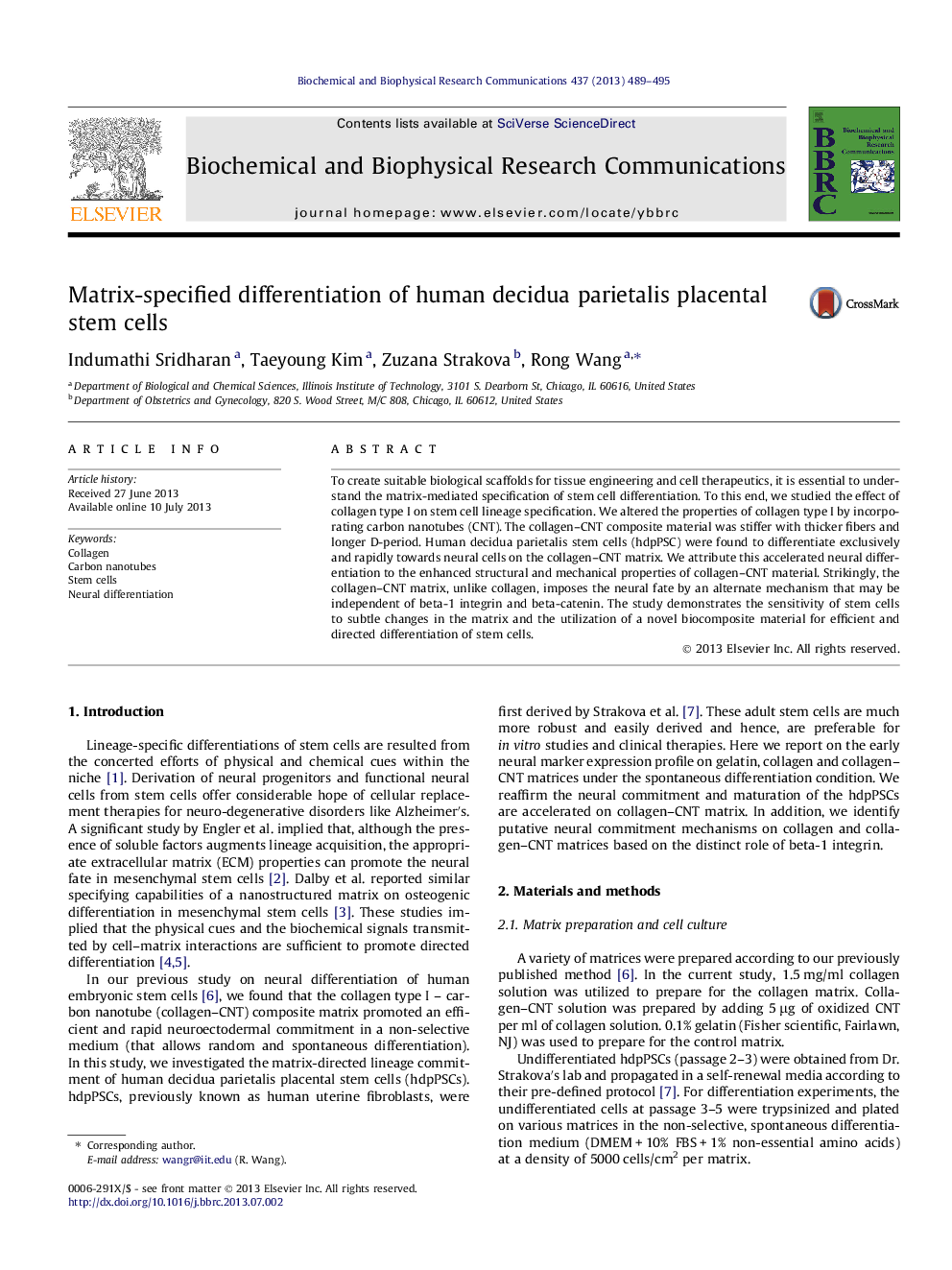| Article ID | Journal | Published Year | Pages | File Type |
|---|---|---|---|---|
| 10758944 | Biochemical and Biophysical Research Communications | 2013 | 7 Pages |
Abstract
To create suitable biological scaffolds for tissue engineering and cell therapeutics, it is essential to understand the matrix-mediated specification of stem cell differentiation. To this end, we studied the effect of collagen type I on stem cell lineage specification. We altered the properties of collagen type I by incorporating carbon nanotubes (CNT). The collagen-CNT composite material was stiffer with thicker fibers and longer D-period. Human decidua parietalis stem cells (hdpPSC) were found to differentiate exclusively and rapidly towards neural cells on the collagen-CNT matrix. We attribute this accelerated neural differentiation to the enhanced structural and mechanical properties of collagen-CNT material. Strikingly, the collagen-CNT matrix, unlike collagen, imposes the neural fate by an alternate mechanism that may be independent of beta-1 integrin and beta-catenin. The study demonstrates the sensitivity of stem cells to subtle changes in the matrix and the utilization of a novel biocomposite material for efficient and directed differentiation of stem cells.
Related Topics
Life Sciences
Biochemistry, Genetics and Molecular Biology
Biochemistry
Authors
Indumathi Sridharan, Taeyoung Kim, Zuzana Strakova, Rong Wang,
